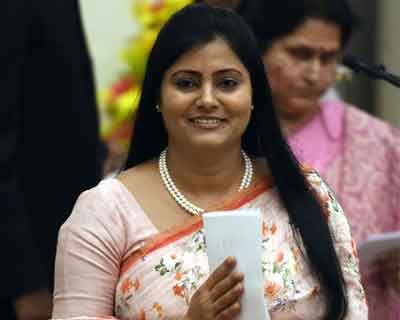- Home
- Medical news & Guidelines
- Anesthesiology
- Cardiology and CTVS
- Critical Care
- Dentistry
- Dermatology
- Diabetes and Endocrinology
- ENT
- Gastroenterology
- Medicine
- Nephrology
- Neurology
- Obstretics-Gynaecology
- Oncology
- Ophthalmology
- Orthopaedics
- Pediatrics-Neonatology
- Psychiatry
- Pulmonology
- Radiology
- Surgery
- Urology
- Laboratory Medicine
- Diet
- Nursing
- Paramedical
- Physiotherapy
- Health news
- Fact Check
- Bone Health Fact Check
- Brain Health Fact Check
- Cancer Related Fact Check
- Child Care Fact Check
- Dental and oral health fact check
- Diabetes and metabolic health fact check
- Diet and Nutrition Fact Check
- Eye and ENT Care Fact Check
- Fitness fact check
- Gut health fact check
- Heart health fact check
- Kidney health fact check
- Medical education fact check
- Men's health fact check
- Respiratory fact check
- Skin and hair care fact check
- Vaccine and Immunization fact check
- Women's health fact check
- AYUSH
- State News
- Andaman and Nicobar Islands
- Andhra Pradesh
- Arunachal Pradesh
- Assam
- Bihar
- Chandigarh
- Chattisgarh
- Dadra and Nagar Haveli
- Daman and Diu
- Delhi
- Goa
- Gujarat
- Haryana
- Himachal Pradesh
- Jammu & Kashmir
- Jharkhand
- Karnataka
- Kerala
- Ladakh
- Lakshadweep
- Madhya Pradesh
- Maharashtra
- Manipur
- Meghalaya
- Mizoram
- Nagaland
- Odisha
- Puducherry
- Punjab
- Rajasthan
- Sikkim
- Tamil Nadu
- Telangana
- Tripura
- Uttar Pradesh
- Uttrakhand
- West Bengal
- Medical Education
- Industry
Lack of awareness about new medical products: Patel

New Delhi : There is lack of awareness about new medical products and diagnostic tools and technology are being used under the National Health Mission to overcome this, Minister of State for Health Anupriya Patel said.
"Therapy penetration is very low even among patients who can afford it. Although, there is a new generation of pacemakers, stents, insulin pumps and drug injecting pumps, field research indicates there is low awareness about these new medical products and services even among physicians.
"There is also a lack of awareness of diagnostic tools and the low affordability of treatment," an ASSOCHAM statement quoting Patel said.
She said the critical barriers to accessing health care in India include a lack of disease awareness, screening, diagnosis, referrals, trained doctors and funding.
"The availability of diagnostic facilities at district hospitals and other health care facilities, use of technology, rolling out of dialysis in those hospitals with over 10 lakh dialysis sessions among others are some of the other important areas where technology is being used extensively by the government under the NHM," she said.
In health care, technology is increasingly playing a role in almost all processes, from patient registration to data monitoring and from lab tests to self-care tools, Patel added.
Noting that new initiatives have been taken in terms of Electronic Health Records (EHR), telemedicine, use of mobile technology and apps for health delivery, Patel said there is a need to innovate and adopt newer and more cost effective solutions for meeting the challenges that we face.
There is a need to explore and exploit non-traditional solutions to a wide range of systemic health care delivery challenges focussing on quality, accessibility and cost issues, Patel said while inaugurating an ASSOCHAM Conference on 2nd MEDCON 2017.
With the objective of ensuring the rights, safety and well-being of clinical trial participants and facilitating ease of doing business, transparent and objective procedures have been specified for clinical trials and functioning of ethics committees, she said.
Noting that an extensive exercise has been undertaken to refine the regulatory framework for medicinal products, she said this has been done with a view to provide a transparent, predictable and objective regulatory framework that will ensure quality, safety and performance of medical devices and also the ease of doing business.
Health secretary C K Mishra said India has recently rolled out a new national health policy 2017 which reflects a paradigm shift in health care delivery from sick care to preventive, promotion, palliative, rehabilitative health care.
"This is possible only with advanced medical technologies. Many innovations and advancements have been made in pharmaceuticals, medical devices and services. Technological innovations are no longer an option but have now become a necessity.
"We need to not just increase innovation, but make it more suited to our indigenous needs, and at the same time increase levels of community awareness because that is a critical barrier to accessing affordable health care in India," the statement quoting Mishra said.


